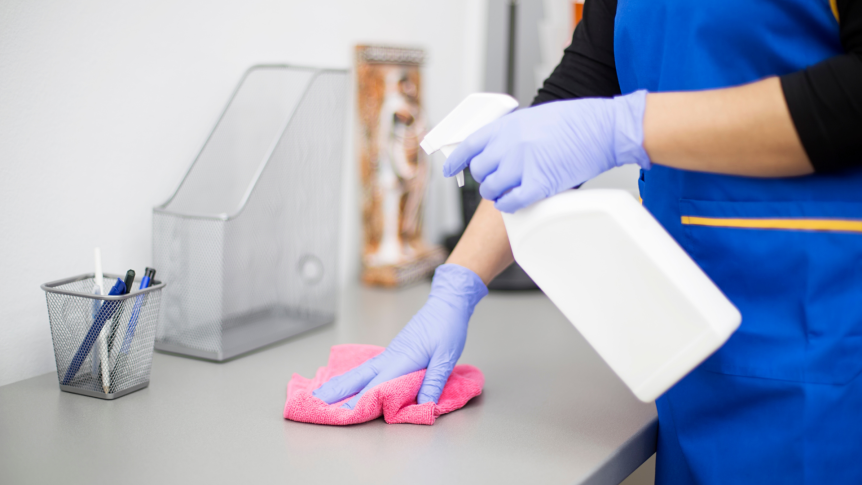Provided By: Medical Bag
First impressions say much to a prospective patient, and working in a clean environment is essential for medical staff. Clean waiting rooms, exam rooms, front desks, and bathrooms are important. Keeping germs at bay is prudent. How many patients complain that they don’t like going to the doctor (or hospitals) because they always get sick? In the medical office, a simple surface cleaning and pickup just are not enough.
Many practices hire a cleaning service. If you are just starting a practice, ask other health care professionals whom they use to clean their offices and if they are highly satisfied. If you are unhappy with the way your office is currently cleaned, do the same: ask around and check references.
Cleaning services will help with the overall cleaning of your office; however, they generally cannot monitor for infectious diseases and will need assistance from the office staff to maintain a healthy, sterile environment.
Keeping your office clean during work hours is essential. Consider having a set of guidelines available for staff that will detail essential cleaning that needs to take place during the workday. These could include:
- Biohazard waste practice: use specific containers and disinfect any work areas that come in contact with biohazards immediately.
- Gloves should be placed into infectious waste containers.
- Wash hands after each patient visit. Do not spread germs.
- Trash should be removed as required and not left to pile up for a cleaning company.
- Check the restrooms, public and employee, and add a disinfectant germicidal solution to the toilet bowls during the day (as directed on the bottle). Replace toilet paper as needed.
- Clean doorknobs and light switch plates with disinfectant.
- Use exam room table disposable paper and wipe down with disinfectant as needed.
- Keep employee work areas clean. Less mess equals more productivity. Remind employees to keep their respective areas tidy, clean, and uncluttered by way of signage and/or at staff meetings.
- If you have a break room, kitchen, or lunchroom, make sure areas are cleaned up after use. Encourage staff to take home all unused items from the refrigerator on a weekly basis.
- If something spills, clean it up immediately. Use appropriate cleaning solutions and never let substances sit on the floor.
Office cleaning habits are a reflection of your practice, and it’s important to stress that extra care is required in the medical setting. It’s necessary for all staff members to pitch in and do their part.
To learn more about how we can help to keep your office clean of medical waste, click here!
